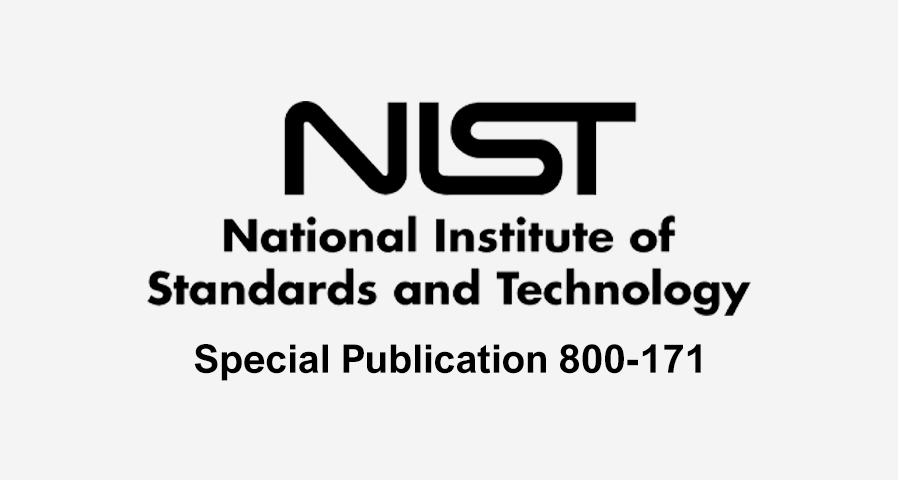What is NIST SP 800-171?
NIST SP 800-171 is a set of security requirements issued by the National Institute of Standards and Technology (NIST) for protecting Controlled Unclassified Information (CUI) in non-federal information systems and organizations. The purpose of NIST SP 800-171 is to help organizations ensure the confidentiality, integrity, and availability of the CUI they handle or process. The standard applies to all organizations that work with or on behalf of the U.S. government and handle CUI, regardless of whether they are federal contractors or not. NIST SP 800-171 outlines a comprehensive set of security controls, including access control, incident response, security assessment and authorization, system and information integrity, and others, that organizations must implement to secure CUI.
What is required to meet NIST 800-171?
To meet NIST SP 800-171, organizations must implement a set of security controls that address 14 different areas of information security, including:
- Access Control: Ensure that only authorized users have access to CUI.
- Incident Response: Establish procedures for responding to and reporting security incidents.
- Security Assessment and Authorization: Periodically assess the security of information systems and authorize their operation.
- System and Information Integrity: Ensure the accuracy, completeness, and consistency of information processed by information systems.
- Protection of Cardholder Data: Secure cardholder data and comply with the Payment Card Industry Data Security Standard (PCI DSS).
- Personnel Security: Ensure that personnel are aware of their security responsibilities and are trained to follow security procedures.
- Physical Security: Protect information systems and the CUI they process from unauthorized physical access.
- Security Management: Develop, document, and implement security policies, procedures, and plans.
- Incident Reporting and Management: Report and manage incidents in a timely manner.
- System and Communications Protection: Protect information systems and the communications networks they use.
- System and Information Availability: Ensure that information systems and the information they process are available when needed.
- System and Organization Controls: Implement controls to prevent unauthorized use of information systems and the information they process.
- Contractor Sourced Controlled Unclassified Information: Secure CUI obtained from contractors.
- Information System and Communications Documentation: Document information systems and the communications networks they use.
Organizations must also maintain a security plan that documents their compliance with NIST SP 800-171 and regularly assess their security posture to ensure that their security controls are effective and up-to-date.
What technologies are used to meet NIST 800-171?
There are a number of technologies that organizations can use to meet the security requirements of NIST SP 800-171. Some of the most commonly used technologies include:
- Identity and Access Management (IAM) Solutions: These solutions control who has access to CUI and what actions they can perform.
- Firewalls: Firewalls are used to protect information systems from unauthorized access.
- Intrusion Detection and Prevention Systems (IDPS): IDPS detect and prevent security incidents, such as attacks or unauthorized access attempts.
- Encryption: Encryption is used to protect CUI while it is in transit or at rest.
- Virtual Private Networks (VPNs): VPNs provide secure remote access to information systems.
- Endpoint Protection Solutions: These solutions protect information systems from malware and other threats.
- Data Loss Prevention (DLP) Solutions: DLP solutions help prevent the unauthorized disclosure of CUI.
- Backup and Recovery Solutions: Backup and recovery solutions ensure that CUI can be restored in the event of a disaster.
- Security Information and Event Management (SIEM) Solutions: SIEM solutions collect, analyze, and respond to security events and incidents.
- Vulnerability Management Solutions: Vulnerability management solutions identify and prioritize vulnerabilities in information systems, and help organizations address them.
These are just a few examples of the technologies that organizations can use to meet NIST SP 800-171. The specific technologies that an organization uses will depend on its specific security needs and requirements.
Share This Article
Other Articles that may be of interest:
How can I help?
With over 2+ decades of experience in the field of IT and compliance, I have successfully overseen multiple FedRAMP certifications and a dozen ATOs within the realms of the DOJ and DOD.
“Chue is a brilliant technologist who is a SME for everything with InfoSec and Federal Government Compliance. He is incredibly diligent, hard-working and is able to easily discuss complicated technical matters with both experts and beginners. His can-do, humble attitude made it a distinct pleasure to work with and learn from him.”
Other endorsements…
“Working with Chue has been an honor. He’s incredibly knowledgeable and always travels out of his way to offer assistance and guidance. He made sure our systems were completely secure and gave us the peace of mind to focus on our responsibilities without worry of interruption.
Outside of a work capacity, Chue has been a positive and motivating force and he has a keen ability to instill trust.”
Experts who understands the Federal landscape
Imagine a world where organizations enthusiastically embrace cutting-edge AI technology, harnessing its power to gain profound insights into high-risk scenarios and propelling themselves toward their core business objectives with confidence!
Here at FabricLake, we take the charge in revolutionizing federal compliance solutions! We’ve masterfully entwined the power of artificial intelligence into the very essence of our compliance processes. This astute integration doesn’t just optimize workflows; it paves the way for seamless task management and issue resolution, all while upholding the highest industry standards. In the heart of our Federal Compliance division, AI has seamlessly woven itself into the fabric of our operations, giving birth to RiskGuardian360 – a specialized application that unleashes the full potential of AI to steer us towards our compliance objectives with unwavering determination. Join us in embracing this cutting-edge technology and watch your compliance needs transform into opportunities for excellence!









